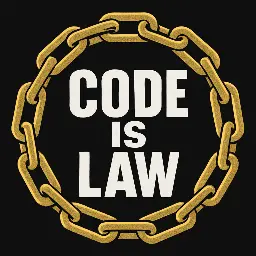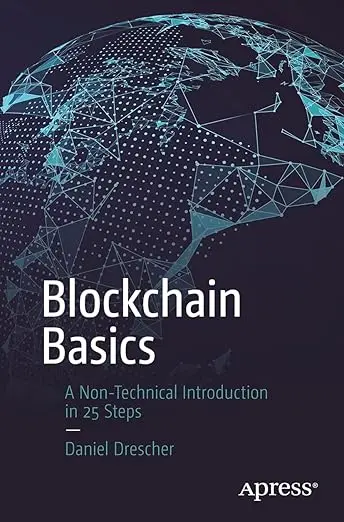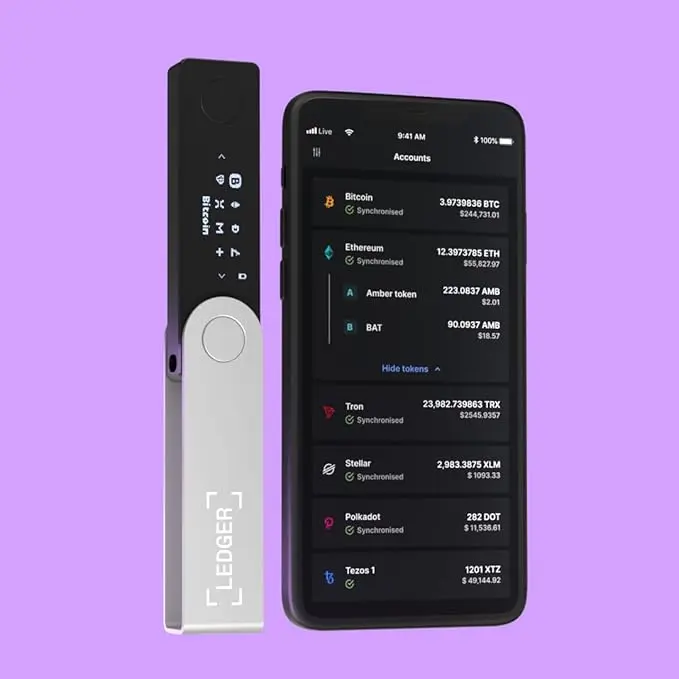In the last two decades, few technologies have generated as much excitement, disruption, and debate as blockchain. Initially developed as the underlying infrastructure for Bitcoin, blockchain has since grown far beyond cryptocurrency. It now promises to revolutionise industries from finance and healthcare to logistics and entertainment.
This article explores blockchain as a foundational technology, offering insights into its mechanics, powerful real-world applications, emerging threats, and opportunities for individuals and businesses alike.
What is Blockchain Technology?
At its core, blockchain is a decentralised digital ledger that records transactions across a network of computers. Each record, or ‘block’, is cryptographically linked to the one before it, forming an immutable ‘chain’. This structure ensures data integrity and security without the need for a central authority.
Key characteristics of blockchain:
- Decentralisation: No single entity controls the data.
- Transparency: All transactions are visible to network participants.
- Immutability: Once data is recorded, it cannot be changed retroactively.
- Security: Blockchain uses advanced cryptographic techniques to protect data.
Five Powerful Case Studies of Blockchain in Action
1. Supply Chain Traceability – IBM & Maersk
Global shipping giant Maersk partnered with IBM to develop TradeLens, a blockchain platform designed to increase transparency and efficiency in global trade. By digitising documents and allowing real-time tracking, blockchain reduces fraud, errors, and costs while speeding up processes.
2. Healthcare – Estonia’s eHealth Authority
Estonia, a pioneer in digital government, uses blockchain to secure medical records. Citizens have control over who accesses their data, and every query is immutably logged. This increases privacy, trust, and efficiency in healthcare delivery.
3. Digital Identity – ID2020 Alliance
The ID2020 initiative leverages blockchain to provide secure digital identities to refugees and displaced persons. These identities are portable, verifiable, and under the control of the individual – critical for access to banking, healthcare, and education.
4. Voting – Voatz in the United States
Voatz is a mobile voting platform that uses blockchain to ensure the integrity of election results. Pilots in Utah and West Virginia showed promising results in enabling secure, transparent, and tamper-proof voting, particularly for overseas citizens.
5. Finance – DeFi (Decentralised Finance) Ecosystems
Platforms like Aave and Uniswap enable peer-to-peer lending, borrowing, and trading without traditional banks. Blockchain ensures transparency and self-executing smart contracts provide automation and security, though not without risk.
Dark Side of the Chain: Problems and Threats
Despite its promise, blockchain is not without its controversies. Several issues cast long shadows over this otherwise bright technology:
1. Data Security and Hacking
Though blockchain is secure by design, the platforms built on top of it are not always as robust. Several decentralised finance (DeFi) platforms have lost millions due to coding bugs or poor security. In 2022 alone, hackers stole over $3 billion from blockchain-based projects.
2. Scams and Ponzi Schemes
The anonymity and unregulated nature of blockchain have given rise to scams like rug pulls, pump-and-dumps, and fake initial coin offerings (ICOs). Fraudsters can disappear overnight with investor funds.
3. Organised Crime
Blockchain has enabled black markets on the dark web, using cryptocurrencies like Monero and Bitcoin for illicit trades in weapons, drugs, and stolen data.
4. Data ‘Sludge’ and Scalability
Blockchains can become bloated with useless or malicious data. Once it’s recorded, it can’t be removed, leading to concerns about illegal content and digital pollution.
5. Environmental Impact
Proof-of-work blockchains (like Bitcoin) consume enormous amounts of energy. While newer blockchains are adopting greener alternatives (like proof-of-stake), energy usage remains a concern.
Blockchain for the Individual
For the everyday user, blockchain opens a world of possibilities:
- Personal Data Control: Store your identity, health records, and credentials securely. You decide who sees what and when.
- Financial Inclusion: Access global finance without needing a traditional bank account.
- Digital Ownership: Use NFTs (non-fungible tokens) to prove ownership of digital assets like art, music, and even real estate.
Wearable devices like the Oura Ring, Apple Watch, or Google Pixel Watch are increasingly integrating with blockchain for:
- Secure biometric authentication.
- Payment processing via Apple Pay or Google Pay.
- Health data management through decentralised storage solutions.
As wearables grow smarter, expect more integration with blockchain to improve privacy and protect sensitive personal data.
Blockchain for Business
Businesses, from start-ups to multinational corporations, are integrating blockchain in profound ways:
- Supply Chain Management: Verify authenticity, track goods, and reduce counterfeits.
- Smart Contracts: Automate agreements that self-execute once conditions are met.
- Customer Loyalty Programmes: Use tokens to create secure, universal loyalty points.
- Secure Communication & Collaboration: Prevent data leaks and espionage with decentralised file sharing.
- Accounting and Auditing: Immutable ledgers improve trust and reduce fraud.
Protect Your Private and Corporate Data
With cybercrime on the rise, protecting sensitive information is non-negotiable. Blockchain provides a robust layer of security and transparency, ensuring that both personal and corporate data remains tamper-proof, accessible, and under your control.
Introducing Our Cybersecurity Course
To empower individuals and businesses in navigating this complex digital landscape, we’re launching a comprehensive course on Cybersecurity and Blockchain Technology.
What you’ll learn:
- Blockchain fundamentals
- Identifying and avoiding scams
- Securing wearable and IoT devices
- Protecting personal data with decentralised apps
- Corporate-level security strategies
Ideal for: entrepreneurs, IT professionals, students, business owners, and tech-savvy individuals looking to secure their digital lives.

Five Catchphrases for T-Shirts
- “In Blocks We Trust”
- “Your Keys, Your Coins, Your Power”
- “Verified on the Chain”
- “Hack Me Not”
- “Blockchain: Code Is Law”
Five Related Videos on YouTube
Related Videos
Blockchain Expert Explains One Concept in 5 Levels of Difficulty
How Does Blockchain Work?
-
“Blockchain Expert Explains One Concept in 5 Levels of Difficulty” – WIRED
https://www.youtube.com/watch?v=hYip_Vuv8J0 -
“How Does Blockchain Work?” – Simply Explained
https://www.youtube.com/watch?v=SSo_EIwHSd4 -
“The Dark Side of Blockchain” – ColdFusion
https://www.youtube.com/watch?v=I2n4AO7AKw4 -
“Blockchain Beyond the Hype” – IBM Think Academy
https://www.youtube.com/watch?v=QsU1fL3hSPw -
“What is DeFi?” – Finematics
https://www.youtube.com/watch?v=wD_e3Fvjt1k
Five Related Books on Amazon
Blockchain Basics
In just 25 clear steps, this book teaches blockchain fundamentals—no math, coding, or tech jargon required. It uses simple language, visuals, and analogies, making it accessible with zero prior knowledge.
Bridging the gap between technical and business books, it explains key blockchain concepts and how they apply to real-world business use.
- “Blockchain Basics: A Non-Technical Introduction in 25 Steps” by Daniel Drescher https://amzn.to/42lrZkf
-
“Mastering Blockchain” by Imran Bashir
https://www.amazon.co.uk/dp/1803241067 -
“The Basics of Bitcoins and Blockchains” by Antony Lewis
https://www.amazon.co.uk/dp/1642501186 -
“Blockchain Revolution” by Don Tapscott and Alex Tapscott
https://www.amazon.co.uk/dp/024123785X -
“Cryptoassets” by Chris Burniske and Jack Tatar
https://www.amazon.co.uk/dp/1260026671
Five Related Products on Amazon
Ledger
Nano X
Ledger Nano X Crypto Hardware Wallet (Onyx Black) - Bluetooth - The best way to securely buy, manage and grow all your digital assets
-
Ledger Nano X – Cryptocurrency Hardware Wallet
https://amzn.to/44Ag97d -
Oura Ring Gen 3 – Health Tracker
https://www.amazon.co.uk/dp/B09JBNX8XM -
Apple Watch Series 9 with Apple Pay
https://www.amazon.co.uk/dp/B0CHY9LYF2 -
Raspberry Pi 4 Starter Kit – Ideal for Learning Blockchain Development
https://www.amazon.co.uk/dp/B07TD42S27 -
Trezor Model T – Secure Crypto Wallet
https://www.amazon.co.uk/dp/B07VJBLFCF
Five Related Web Links
-
Ethereum.org – https://ethereum.org/en/
Introductory resources and tools for building on the Ethereum blockchain. -
CoinDesk – https://www.coindesk.com/
Latest blockchain news, trends, and market analysis. -
Blockchain.com – https://www.blockchain.com/
Crypto wallet, explorer, and exchange. -
CryptoCompare – https://www.cryptocompare.com/
Data on prices, exchanges, mining, and more. -
CBInsights: Blockchain 101 – https://www.cbinsights.com/research/what-is-blockchain-technology/
Deep dive articles and research.
Final Thoughts
Blockchain is more than a buzzword. It is the architecture of a new era of trust and autonomy — where individuals reclaim ownership of their data, and businesses operate with greater integrity and transparency. However, as with all powerful tools, the key lies in understanding both its potential and its pitfalls.
By educating ourselves and adopting responsible practices, we can harness the transformative power of blockchain while safeguarding what matters most — our privacy, identity, and future.
Want to stay ahead of the curve? Enrol in our upcoming Cybersecurity and Blockchain Mastery Course today!

